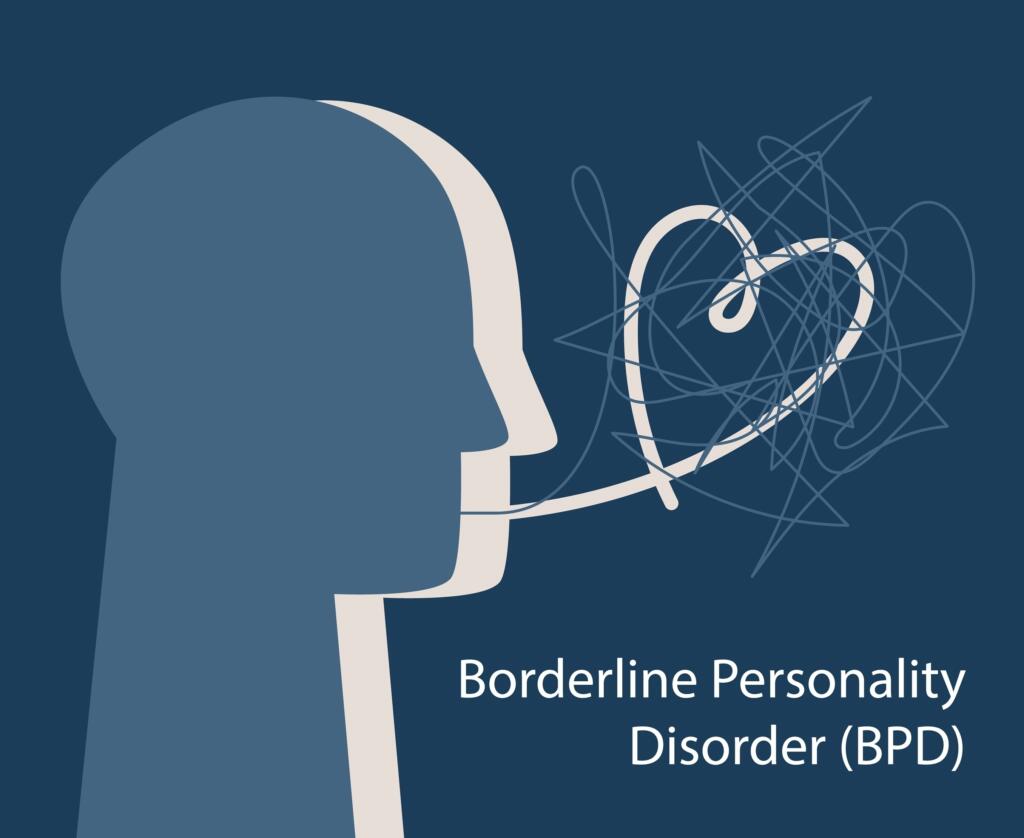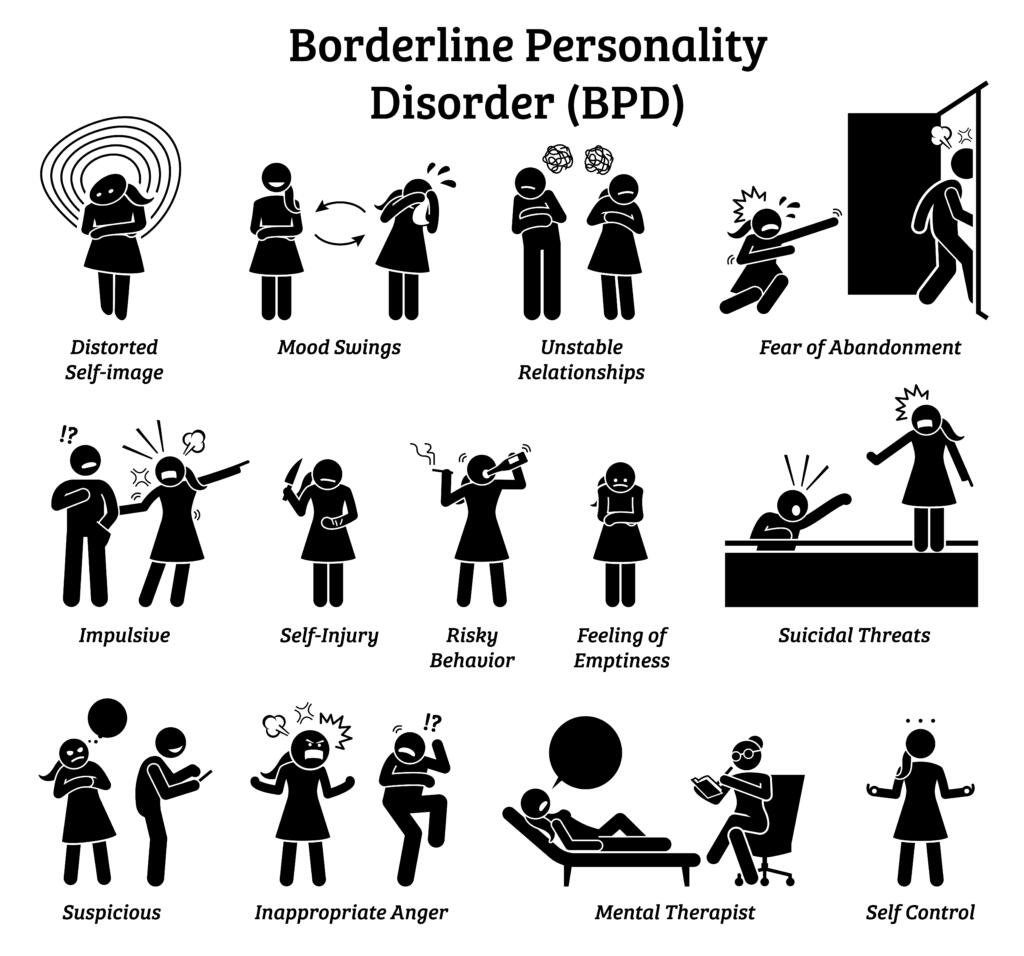0207 205 2845 0207 205 2845



BPD Splitting is a symptom of a mood disorder that impacts our feelings about ourselves and others. It is found in around 1.6% of the population but accounts for 20% of psychiatric inpatients (alongside other conditions).
The disorder is one of the most common serious psychiatric issues. It is linked to genetic and environmental factors, although no specific gene has been identified.
Heritability may be much lower than it appears as it is strongly linked to stress and trauma during childhood. The chances of families of people with BPD behaviour causing this strain are higher than in the general population.
One of the most common indicators of BPD is splitting, believing that things are 100% good or bad, one way or another. The inability to accept that situations and relationships can have both good and bad aspects makes them hard to sustain.
For example, someone with BPD splitting may idealise someone close to them and then condemn them when they do something perceived as negative. The recipient of this view may feel they can’t do anything right.
When a person perceived as ‘perfect’ or good in the sufferers’ eyes does anything wrong, it appears to be a complete betrayal of their ideal. Their reaction can often be out of proportion. Even a small infraction will lead to a spiral of anger, depression, and complete rejection.
Most medications to treat BPD focus on mood stabilisation, depending on your symptoms. Some of the most common medications for BPD are:
– Anticonvulsant Mood Stabilizers
– Anti-anxiety medications
– Anti-depressants
– Antipsychotics
Psychotherapy guided by expert counsellors and specialists can make a real difference to your long-term recovery. Group therapy also helps you feel less isolated and practice acceptance of yourself and your condition.
This therapy will be daily in mental health rehab as an inpatient. Frequent sessions are helpful at first. Later, you can choose as needed or have a weekly appointment or meeting.
Inpatient treatment can be a huge step, especially when you are already emotionally unstable. Additionally, your community mental health team may not view your case as a priority if you are not a danger to yourself or others.
Mental health rehab provides a respite from life and privacy when you feel emotionally vulnerable.
Expert care and medication aid your recovery while you take a break from day-to-day responsibilities and relationships. Daily therapy, holistic treatment plans, and activities are all important parts of your recovery. 2
Residential mental health rehab is a safe and relaxing space with the facilities of a hotel alongside treatment and relaxation.

Like many symptoms of mental health disorders, splitting is a distortion of reality. Not having a balanced idea about whether a relationship is healthy or risky leaves BPD sufferers vulnerable to abuse.
They may overly trust someone they believe to be inarguably ‘good’. Also, that may upset and alienate people who care for them by taking any of their negative actions as unforgivable.
– Unstable behaviour, emotions and thought patterns
– Distorted views on the world
– Polarisation, seeing things as all good or bad
– Obsessive behaviour and relationships
– Sudden irrational changes in behaviour and attitude
– Extreme and unwarranted reactions
– Unable to accept flaws in others
– Feeling abandoned despite alienating others
Several signs help you spot BPD splitting in those with the disorder. Unusual, erratic or upsetting behaviour is the most obvious, but some people with BPD learn to keep their more extreme activities and thoughts under wraps.
Vocabulary can help you spot this as well. Using excessive or intense words or expressions is common and easy to follow in a pattern.
Saying things like ‘you never do anything for me’, ‘you are always at work,’ and ‘all my friends hate me’ may sound like something people say a lot in anger or the heat of the moment. However, a person with BPD splitting will use these expressions often and mostly in the context of relationships.
A borderline personality disorder is thought to be due to both genetic and environmental factors. Much of the issue with extreme views and feelings about people and relationships come from fear of abandonment and abuse. Trauma, childhood neglect or abandonment and abuse are common in those with BPD.
Issues with relationships, reminders of the trauma and significant life changes can bring on splitting. These triggers might not be obvious to the outside eye. Changes in medication or lifestyle and health could also cause them.
BPD splitting doesn’t need to get out of control. If you suspect you or someone you love with BPD may be experiencing splitting, you should take action.
Psychological therapy, change of medication and removing stress and triggers can be used to moderate and alleviate symptoms.
Mental health rehab can offer a safe, supervised space to recover from BPD. Residential care offers relief from stress and outside pressures. You can also take any new medication under observation from a doctor and receive daily group and individual therapy.
For details on how Rehab Guide can help you with rehab for mental health and well-being, please contact us on 0207 205 2845
References
https://www.ncbi.nlm.nih.gov/pmc/articles/PMC6266914/
https://www.ncbi.nlm.nih.gov/books/NBK430883/
https://www.healthline.com/health/bpd-splitting
https://www.ncbi.nlm.nih.gov/pmc/articles/PMC6266914/